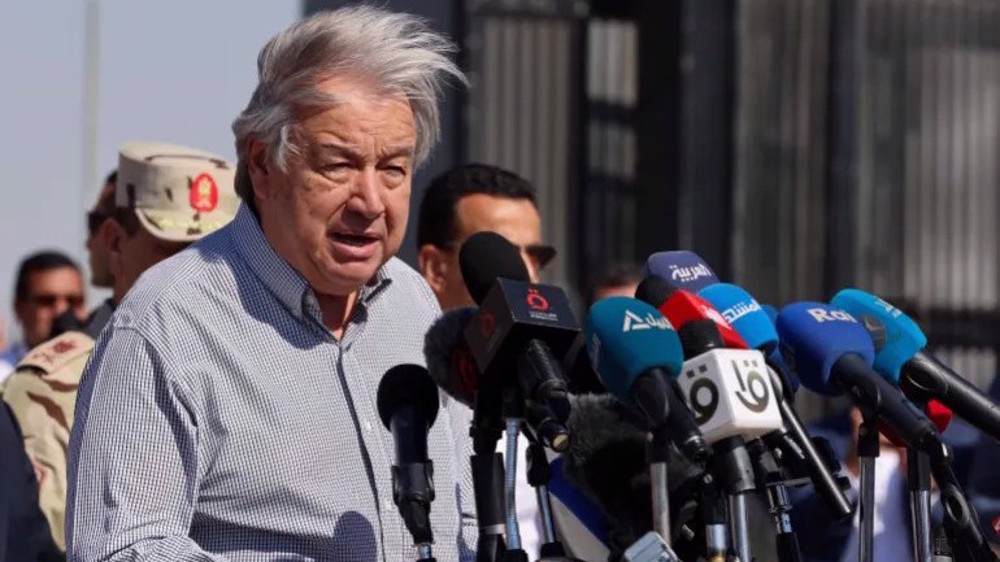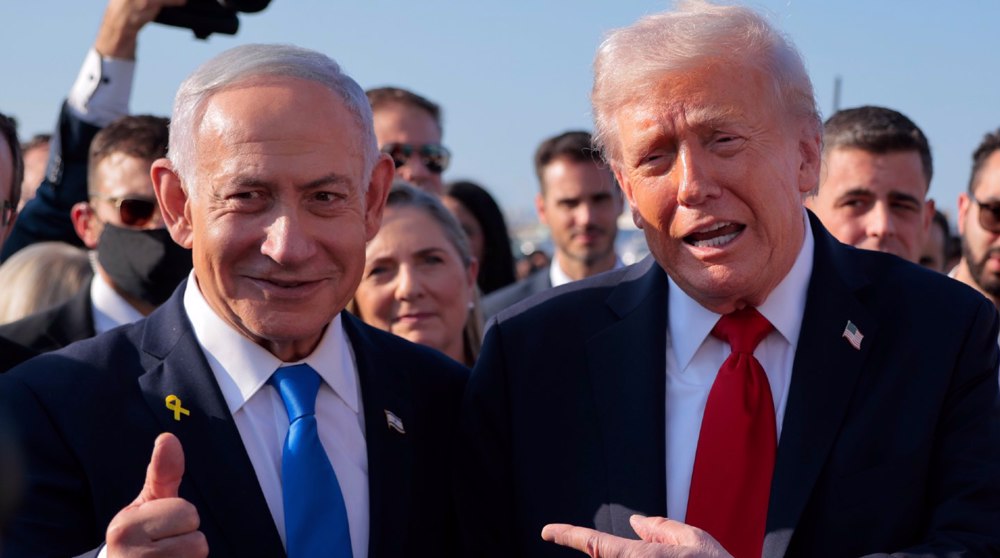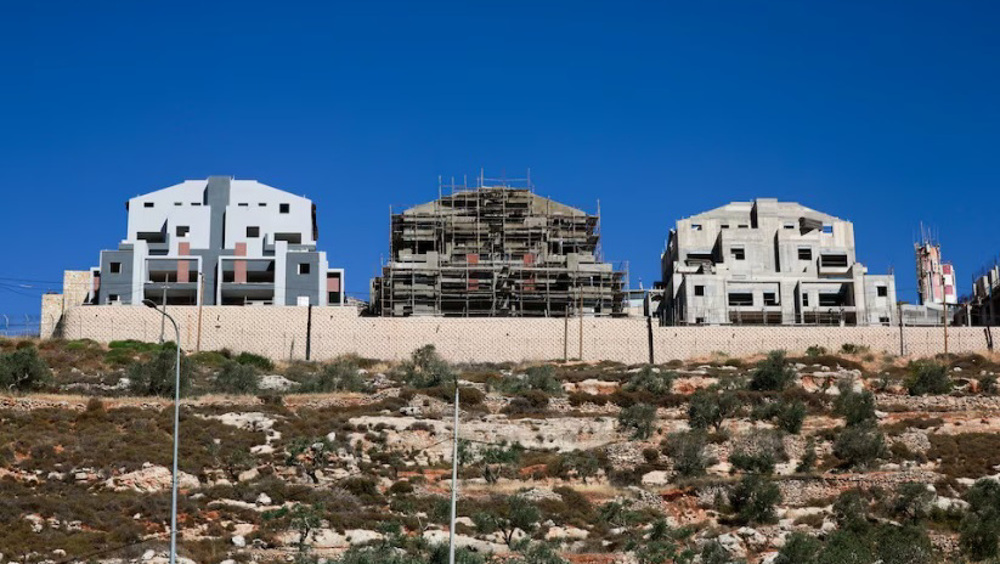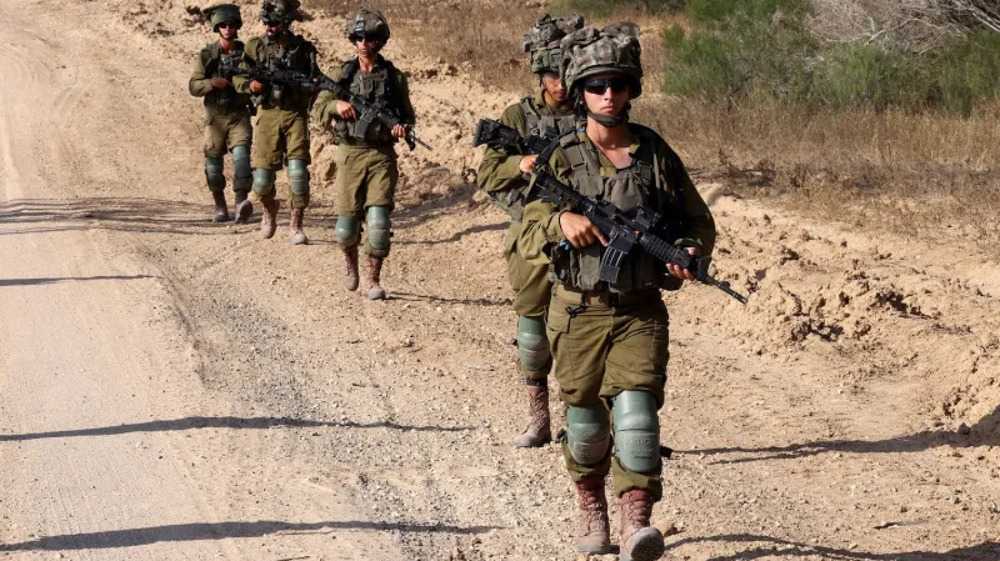'Moral outrage': UN chief condemns Israel's blocking of aid into Gaza
UN Secretary-General Antonio Guterres has condemned the blockade of relief trucks on Egypt's side of the border with the Gaza Strip, describing it as a "moral outrage."
During a visit to the Rafah border crossing on Saturday, the UN chief stressed the urgent need for Israel to guarantee unrestricted access to humanitarian aid throughout Gaza and called for an immediate humanitarian ceasefire.
"Here from this crossing, we see the heartbreak and heartlessness of it all. A long line of blocked relief trucks on one side of the gates, the long shadow of starvation on the other," he said.
"That is more than tragic. It is a moral outrage."
Philippe Lazzarini, the head of the UN agency for Palestinian refugees, said that the Israeli regime blocked food convoys for the second time this week.
In a post on X, Lazzarini said the last time the UNRWA was able to deliver aid to northern Gaza, where starvation is spreading, was two months ago.
"I’ve said it many times: this is a man made hunger & looming famine which can still be averted," he noted.
📍#Gaza: For the 2nd time this week, a food convoy has been denied to northern Gaza.
— Philippe Lazzarini (@UNLazzarini) March 23, 2024
🛑 Today, the Israeli Authorities denied another @UNRWA convoy with much needed food supplies from going to the north where people are on the verge of famine.
The last time @UNRWA was able to…
Visiting the Rafah crossing, Guterres warned of the dire consequences of continued obstruction of aid, saying, "It's time to truly flood Gaza with life-saving aid. The choice is clear: either surge or starvation."
The visit coincides with escalating global pressure on the Israeli regime to allow humanitarian assistance into Gaza, which is at risk of an imminent famine amid widespread shortages of food and water.
The United Nations is working with Egypt to facilitate the flow of aid into Gaza, with Guterres emphasizing the urgent need to address the dire situation.
Before his stop at the border, where he met UN humanitarian workers, Guterres landed in Al Arish in Egypt's northern Sinai, where much of the international relief for Gaza is delivered and stockpiled.
Regional governor Mohamed Shusha told Guterres that some 7,000 trucks were waiting in North Sinai to deliver aid to Gaza, but they were held up because of inspection procedures demanded by the Israeli regime.
As pressure mounts on the Israeli regime to allow humanitarian aid into Gaza, concerns also grow over a planned major military offensive in Rafah, where more than half of Gaza's population is sheltering.
Despite warnings that an invasion of Rafah would cause mass civilian casualties and worsen the humanitarian crisis, Israeli prime minister Benjamin Netanyahu has vowed to press ahead with the attack.
"I hope to do that with the support of the United States, but if we need to, we will do it alone," Netanyahu told visiting US Secretary of State Antony Blinken on Friday.
VIDEO | Press TV's news headlines
VIDEO | Muslims across India begin holy month of Ramadan
Hamas condemns Trump's 'Board of Peace' meeting
Iran and Saudi FMs discuss outcomes of latest indirect Iran-US talks
VIDEO | Maritime anti-terrorism drill
Ex-prince Andrew released after arrest in connection with Epstein files
Iran elected vice-chair of UN Special Committee on Charter
Iran envoy says decision made to exchange ambassadors with Egypt










 This makes it easy to access the Press TV website
This makes it easy to access the Press TV website